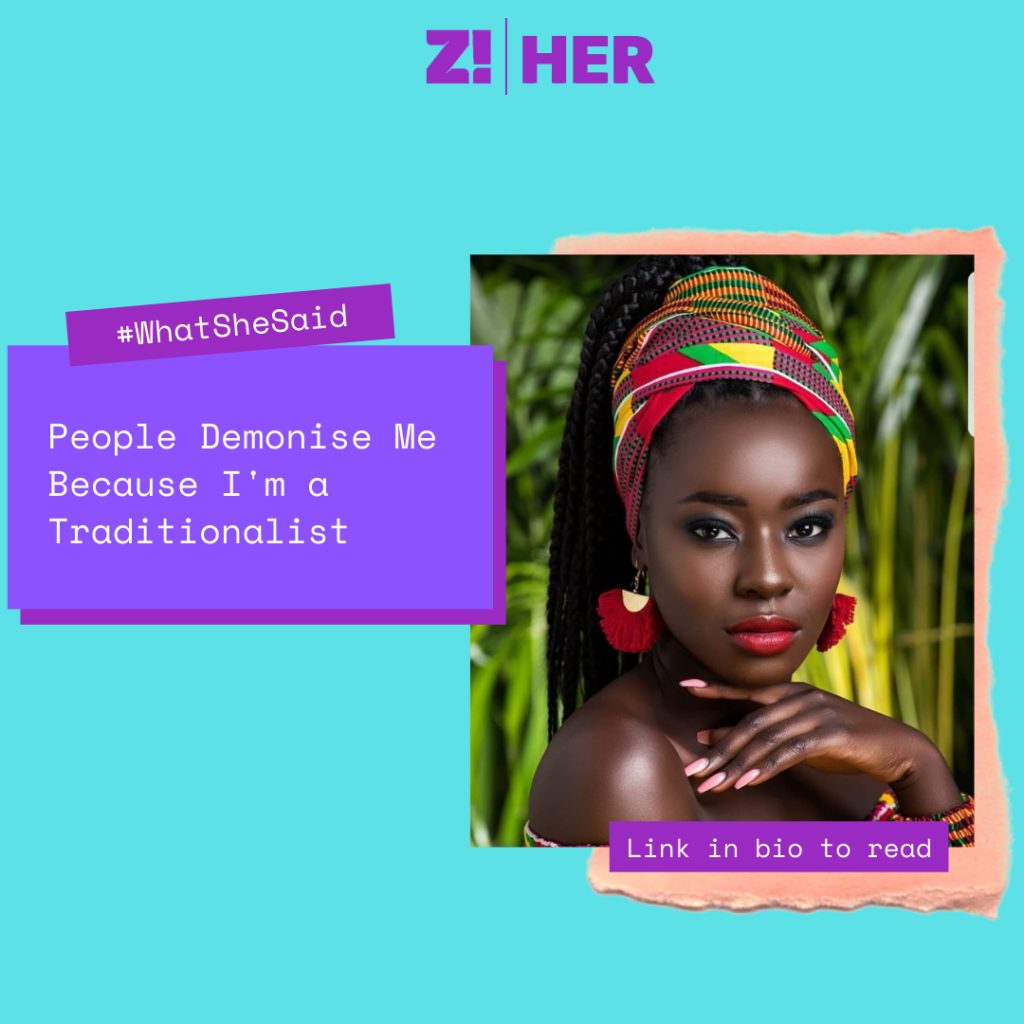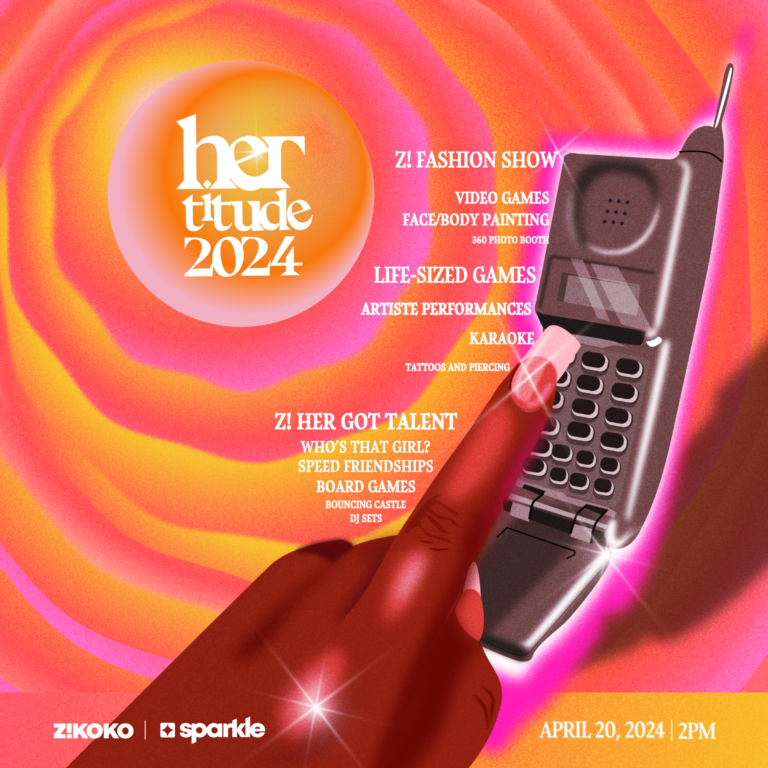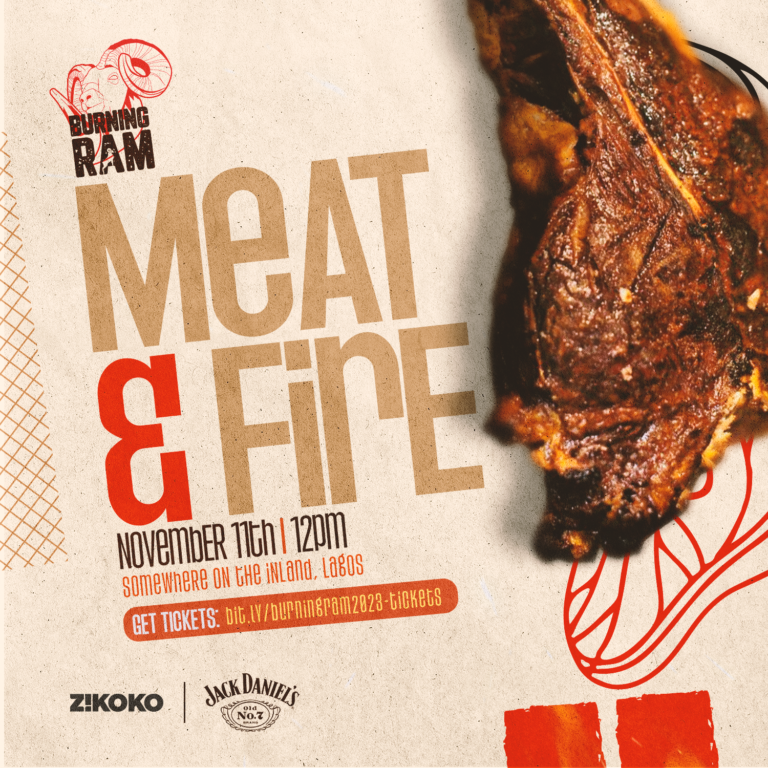This week’s What She Said is a 35-year-old Igbo woman. She talks about compartmentalising herself so people would treat her humanely as a traditionalist, and things she does to combat the stigma attached to traditional worshippers.

Tell me about growing up.
I grew up in Asaba and it was so much fun. We would climb trees at my grandmother’s house, play catcher and race with tyres.
I asked a lot of questions and was always indulged by my parents. You can say I grew up spoiled. I didn’t have a lot of restrictions. I could do anything I wanted as long as I had a good reason to. My dad was a lawyer with an extensive library that I was in charge of. I decided who to loan out books to and my judgment was never really questioned. So while I was spoilt, I was also responsible.
How did having a childhood like this affect you as an adult?
I became my own person on time. I knew it was okay to have an opinion and believe in the things I believed in solely. I grew up with a lot of powerful women, and I learnt by shadowing them. They taught me early that my voice mattered.
But as I got older, I started to compartmentalise myself.
Why?
We are traditionalists in my family, and I’ve realised this affects how people relate with me.
I’ve been making waist beads commercially for about six years. I’ve worn waist beads all my life. I started making them to help women pause and look at their bodies. I believed if they continued to do this, they would realise how beautiful their bodies were.
I also have a beads line for spirituality. I have bracelets that are tailored to the day you are born — like a Zodiac bracelet but using the Igbo days of the week. I only tell people this on a need-to-know basis.
As a traditionalist, I keep my business separate from my religion because I don’t want Nigerians to say I’m selling juju and collecting people’s destinies with beads.
When did you realise you had to make this distinction?
As early as I could talk. I went to a Catholic primary school, and when I was in Primary 1, I was used as an example of what an idol worshipper was and why people shouldn’t eat from me. My mum had a proper blow out and asked them why they thought it was okay to teach that to children.
Outside my house, I learnt people like me were demonic, bad people who hypnotised others to make them do what they want. With the rise of Pentecostalism in the 90s, the hate became worse. Catholicism tried to convert us with love, Pentecostalism taught people to demonise us — we wanted them dead because they worshipped differently.
So when I was outside, I learnt to censor myself.
That’s painful. Has anything changed in recent times?
A bit. People now want to know their roots, how their ancestors worshipped. When I’m not making beads, I’m writing programmes that teach people how to infuse spirituality in their lives, just the same way they do yoga and such.
People have this perception that if you’re a traditional worshipper, you have to look a certain way. So I am deliberate about the way I dress and everything. My life mission is to show people that they can “worship idols” and be baby girls and boys while doing it. I think this helps with how people see me — they may still want to bind and cast me, but it helps.
For more stories like this, check out our #WhatSheSaid and for more women like content, click here
Hi there! While you are here do you want to take a minute to sign up for HER’S weekly newsletter? There’ll be inside gist from this series and other fun stuff. It’ll only take 15 seconds. Yes I timed it.




